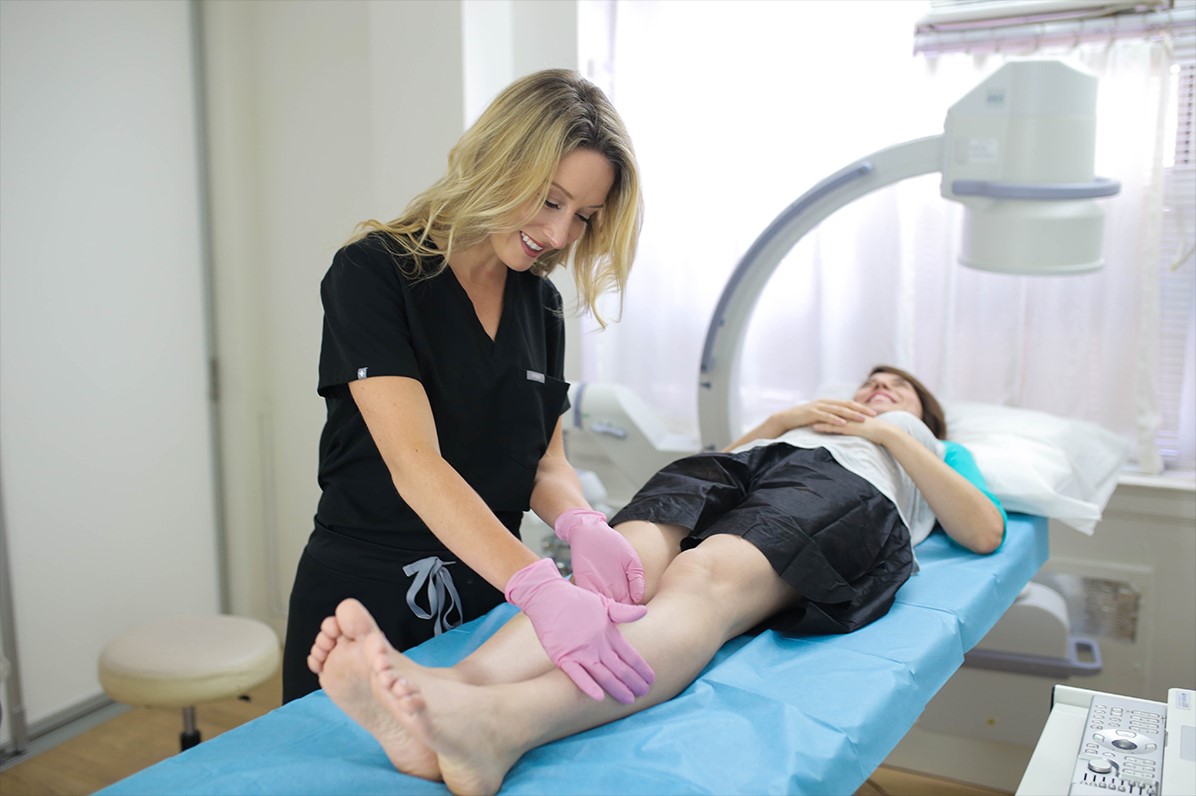
If you’re struggling with varicose veins, understanding What doctor treats varicose veins can help you is crucial for effective treatment. Varicose veins are not just a cosmetic concern but can also lead to more serious health issues if left untreated. Finding the right specialist ensures you get the most appropriate care and relief. Let’s explore what type of doctor treats varicose veins and how you can choose the best one for your needs.
Why See a Specialist for Varicose Veins?
Varicose veins occur when veins become swollen, twisted, and enlarged, often appearing blue or dark purple. They usually develop in the legs and feet due to poor circulation or weakened vein walls. While varicose veins are common, they can cause discomfort, pain, and even lead to complications like ulcers or blood clots. Here’s why seeing a specialist is essential:
- Accurate Diagnosis: A specialist can accurately diagnose the severity and underlying causes of your varicose veins.
- Effective Treatment: Specialists offer treatments that are tailored to your specific condition and health needs.
- Prevention of Complications: Proper treatment can prevent potential complications and improve your overall vein health.
What Type of Doctor Treats Varicose Veins?
When seeking treatment for varicose veins, several types of doctors may be involved. Here’s a breakdown of the main specialists who treat varicose veins:
1. Vascular Surgeons
Vascular surgeons are medical doctors who specialize in diagnosing and treating disorders of the blood vessels, including varicose veins. They are trained to perform various procedures and surgeries to correct vein issues.
Services Provided:
- Sclerotherapy: This involves injecting a solution into the vein to cause it to collapse and eventually be reabsorbed by the body.
- Endovenous Laser Therapy (EVLT): A minimally invasive procedure where a laser is used to close off affected veins.
- Vein Stripping: A surgical procedure to remove large varicose veins.
Why Choose a Vascular Surgeon?
- They have specialized training in the management of complex vein problems.
- They offer both surgical and non-surgical treatment options.
2. Phlebologists
Phlebologists are doctors with specialized training in diagnosing and treating vein diseases, including varicose veins. They often have backgrounds in internal medicine or surgery and have undergone additional training in vein care.
Services Provided:
- Ultrasound Imaging: To assess the condition of the veins and plan treatment.
- Sclerotherapy: Often used for smaller varicose veins or spider veins.
- Endovenous Laser Therapy (EVLT): Similar to the procedures done by vascular surgeons.
Why Choose a Phlebologist?
- They focus exclusively on vein disorders and have a deep understanding of the latest treatments.
- They provide a comprehensive approach to managing vein health.
3. Dermatologists
Dermatologists specialize in skin conditions but can also treat varicose veins, especially when they cause skin issues. They might manage the cosmetic aspects of varicose veins and perform certain non-invasive treatments.
Services Provided:
- Sclerotherapy: Often used to treat smaller varicose veins and spider veins.
- Laser Therapy: Used to treat superficial veins.
Why Choose a Dermatologist?
- They can help if varicose veins lead to skin changes or are a cosmetic concern.
- They offer treatments that improve the appearance of veins.
How to Choose the Right Specialist
Choosing the right specialist for varicose veins depends on several factors, including the severity of your condition, your overall health, and your treatment preferences. Here are some tips to help you make an informed decision:
1. Assess Your Needs
Determine the severity of your varicose veins and what treatments you might need. If you require surgical intervention or complex procedures, a vascular surgeon might be your best option. For less severe cases or cosmetic concerns, a phlebologist or dermatologist may be suitable.
2. Check Credentials and Experience
Look for a doctor with specialized training and experience in treating varicose veins. Verify their credentials and ask about their success rates with various treatments.
3. Consider Treatment Options
Different specialists offer various treatment options. Choose a doctor who provides the treatments that align with your needs and preferences.
4. Seek Recommendations and Reviews
Ask for recommendations from your primary care physician or check online reviews and patient testimonials to gauge the quality of care provided by potential specialists.
What to Expect During Your Appointment
When you visit a specialist for varicose veins, you can expect a thorough evaluation of your condition. Here’s what typically happens:
- Medical History and Symptoms: The doctor will ask about your symptoms, medical history, and any previous treatments.
- Physical Examination: They will examine your legs and assess the appearance and severity of your varicose veins.
- Imaging Tests: Ultrasound or other imaging tests may be used to evaluate the condition of your veins.
- Treatment Plan: Based on the evaluation, the doctor will discuss treatment options and recommend a plan tailored to your needs.
Conclusion
Understanding which doctor treats varicose veins and their role in managing your condition is essential for effective treatment and relief. Whether you see a vascular surgeon, phlebologist, or dermatologist, the right specialist will help you navigate your treatment options and improve your vein health. By considering your needs, researching specialists, and preparing for your appointment, you can take proactive steps toward managing your varicose veins and enhancing your overall well-being.






